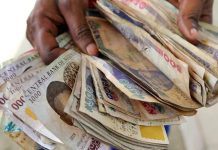Analysts at FSDH Merchant Bank Limited have predicted that Nigeria will record improved foreign portfolio investments (FPIs) in 2019, higher than the 2018 level.
The recently released Capital Importation Report for the second quarter of 2019, released by the National Bureau of Statistics, had shown that capital inflows stood at $5.82 billion. This represented a decline from $8.48 billion in the previous quarter, but an increase of 5.5 percent compared with the corresponding period of 2018.
However, FPIs at $4.3 billion, dominated capital inflows accounting for 74 percent of total inflows in the quarter.
But in its estimate, FSDH analysts in their monthly macroeconomic outlook report anticipated that FPI in 2019, was set to increase beyond the 2018 level.
They noted that already, in the first half of 2019, Nigeria had attracted $114 billion worth of FPI, “which is almost equal to $11.8 billion inflows in 2018.”
FSDH Merchant Bank Limited pointed out that overall, portfolio investment was to remain dominant in 2019.
“Higher inflows into the money market are expected, as the appetite for short term instruments increases.
“Higher demand for short instruments can be hinged on relatively high yields and uncertainties surrounding the economy’s long term prospects especially given Nigeria’s reliance on crude oil exports and the declining government revenues.
“Crude oil production target of 2.3mbpd is unlikely to be met, creating a larger than expected revenue gap,” the research and financial advisory institution added.
It stated that the money market Instruments accounted for 81 percent of the total portfolio investment inflows in the second quarter of 2019.
“Relatively high-interest rate and uncertainty on the long term macroeconomic fundamentals may explain this investor behaviour.
“Equity and Bonds account for 12 percent and seven percent of total portfolio investment inflows respectively.
“Monetary policy rate is expected to remain at 13.5 percent and this is should attract and retain more foreign investments.
“Lower yields in the developed markets, as well as relatively stable Naira, has also encouraged trading in short term instruments,” the report added.
Source: THISDAY










